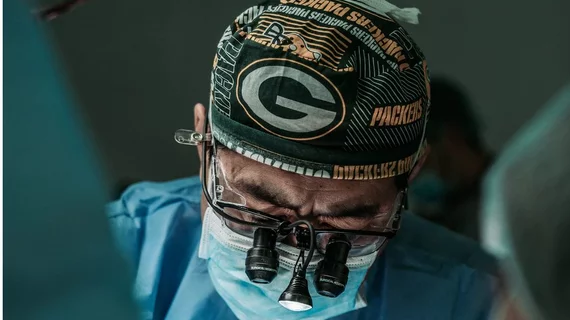LAAO during cardiac surgery helps AFib patients reduce stroke risk
Performing left atrial appendage occlusion (LAAO) during cardiac surgery undertaken for other reasons lowers the risk of stroke among patients with atrial fibrillation (AFib), according to findings published in the New England Journal of Medicine.
The study’s authors examined data from more than 4,800 adult AFib patients treated at one of 105 facilities in 27 countries. The mean patient age was 71 years old, and the mean patient CHA2DS2-VASc score—used to track stroke risk—was 4.2 out of 9. All patients underwent cardiac surgery for a separate indication from July 2012 to October 2018. While approximately half of the cohort underwent LAAO during the surgery, the other half did not.
Overall, after a mean follow-up period of 3.8 years, a stroke or systemic embolism was reported in 4.8% of patients who underwent LAAO and 7% of patients who did not. Bleeding events, heart failure and 30-day mortality were all similar between the two groups.
The mean cross-clamp time (86 minutes vs. 82 minutes) and mean cardiopulmonary bypass time (119 minutes vs. 113 minutes) were both longer for patients in the LAAO group. Also, more patients in the LAAO group were on anticoagulation medications at discharge (83.4% vs. 81%).
“This trial showed that among patients with AFib who had undergone cardiac surgery, most of whom continued to receive ongoing antithrombotic therapy, the risk of stroke or systemic embolism was lower with concomitant LAAO performed during the surgery than without it,” wrote lead author Richard P. Whitlock, MD, PhD, of McMaster University in Hamilton, Ontario, Canada, and colleagues.
Click here to read the full analysis.

